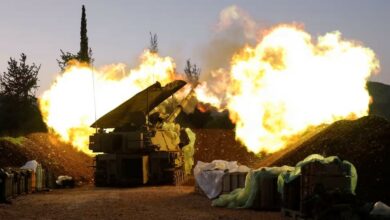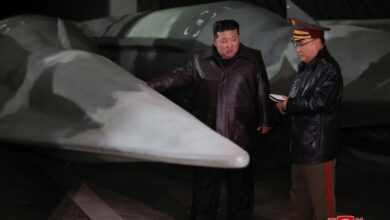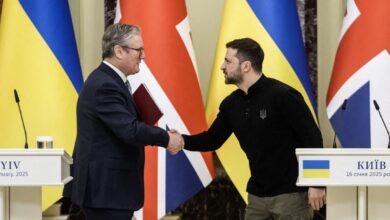
The fighting in Libya’s capital over the past week marks an amplification rather than a continuation of the chaos that has characterized the conflict for seven years. The Seventh Brigade – loyal to the Islamist-leaning coalition of armed groups, “Libya Dawn” – attacked neighborhoods in southern Tripoli on August 26 in an attempt to penetrate the capital, which is now protected by a militia bloc loyal to the United Nations-backed Government of National Accord.
Militias loyal to Libya Dawn have been on the back foot since mid- to late-2017 after being pushed to the outskirts of the capital by GNA-aligned groups in a series of disconnected clashes starting in early 2016. Evidently upset with their fall, militias loyal to the Libya Dawn have been teasing the outskirts of the capital with occasional offensives but never with apparent steadfastness, until now.
There can be informed conjecture but little guarantee regarding the motive and backing of the Seventh Brigade. Whereas the peak in fighting in 2014 was more a manifestation of an ideological split, today’s is a power and resource grab. It is true that ideological components remain – the strongest being the Madkhali Salafi militias’ dominance in the city – but by and large, group loyalty is becoming increasingly purchasable and opportunistic.
The clashes caused at least 47 deaths with about 100 injured; relatively high given Libya’s small population of six million and sporadic fighting that usually sees fewer deaths than other conflicts in the region. Hundred of prisoners have broken loose in the affected neighborhoods, 9,000 people were forced to flee their homes, the only functioning airport in the city (10-20 miles from the fighting in east Tripoli) closed down, and the internationally recognized government declared of a state of emergency.
Two of the handful of dominant militias in the city, the Tripoli Revolutionaries Brigade and the Nawasi Brigade, came to defend the city and prevent the Seventh Brigade’s entrance, but fighting lasted 10 days, ending on Tuesday, September 4 with a ceasefire agreement brokered by the U.N.
On September 4, representatives of the GNA, security apparatuses, and military leaders signed a document to end fighting and to protect civilians and property. One day after its implementation, actors seem to be abiding by the rules of the agreement.
What is concerning about the current fighting is not only the high death toll but the promise that such ruthlessness will continue – either in direct violation of the ceasefire or in other corners of the city – as factions in western Libya splinter into tinier and tinier groups trying to carve out their own piece of the capital.
The political stalemate of both domestic and international nature condemns Tripoli – what should be the seat of a future united government – to perpetual chaos. The House of Representatives based in the east is loyal to strongman General Khalifa Haftar, who launched an anti-terrorism campaign in 2014 and used it to sweep the east half of Libya under his control by 2017.
Today, the parliament has split loyalties and many members do not recognize the U.N.-backed government in the west. The east has attempted to establish parallel institutions such as a Central Bank and a National Oil Corporation, but with little success. The last negotiations between the east and west were brokered by the U.N. in October 2017 and failed after a few weeks over the usual disagreements.
Foreign meddling in Libya
France and Italy are feeding the fire.
France disregarded U.N. rules and hosted Haftar and the head of the GNA, Fayez el Serraj, in May for an internationally-watched meeting between the two rival heads of the Libyan state. In front of the news media in Paris, the two verbally agreed to a constitutional referendum to be held this month and elections in December but no signatures were obtained. The French, knowing full well that safe and legitimate elections are almost impossible given the present security pitfalls, pushed the Libyans into the agreement.
Unaware of this meeting until it was underway, the Italians were angered.
As a reaction to the Paris summit, Italian Prime Minister Giuseppe Conte announced Italy will host its own meeting to stabilize Libya. Conte announced this from the East Room of the White House on July 30, emphasizing that he seemingly garnered U.S. President Donald Trump’s support, thus likely transferring the advantage to Italy in regard to influence in Libya.
No matter who “fixes” Libya and eventually profits from the billions of dollars of reconstruction contracts, what is immediately true is that the international bickering is adding fuel to the literal fires in the country.
The longer the international community fails to agree on how to begin to solve the Libyan crisis, the longer the country will be in violent limbo. Of course, France and Italy are not wholly to blame for the broken situation; Libyans also play a role in their own fate. However, the only people who have real power are the small percentage with weapons on the ground (who are often not one with the government). Regular citizens cannot face them; the international community can.
Until the political gridlock is reconciled, and weapons are retrieved from the thousands of armed men, fighting will continue in all parts of the country.
The situation in Libya remains one in which there is nothing to lose and little to gain; the dynamic causes groups to go to extreme lengths for those little victories. The violence is not a declaration but rather another reminder to the paralyzed international community that the complete destruction of Tripoli is not off the table.
Erin A. Neale is a research assistant at the Atlantic Council’s Rafik Hariri Center for the Middle East where she focuses on North Africa. Follow her on Twitter: @erinaneale.
All views and opinions expressed in this article are those of the author, and do not necessarily reflect the opinions or positions of The Defense Post.
The Defense Post aims to publish a wide range of high-quality opinion and analysis from a diverse array of people – do you want to send us yours? Click here to submit an Op-Ed.











